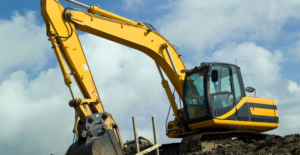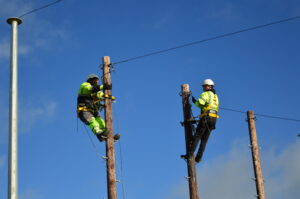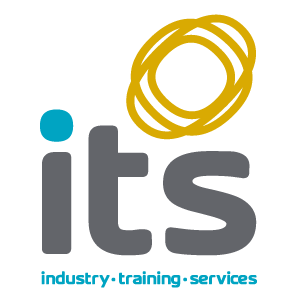April is National Safe Digging Month and every year ITS celebrates this to raise further awareness of safe digging practices, particularly within the construction and engineering sectors across the UK and Ireland. As a specialist provider of health and safety training in the areas of Excavation, Plant and Machinery and Underground Services, we endeavour to ensure that managers, supervisors, safety professionals and operatives involved in digging and excavations are expertly trained to the highest level to avoid accidents and injury and ensure safe digging practice on site.
Excavations and underground services is an integral part of most construction and utilities organisations due to the essential need for utility networks of pipelines, cables and trenches beneath the surface. Knowing what’s beneath, identifying dangers and hazards, interpreting drawings and using safe digging techniques is vital to safe digging practices.
This blog focuses on mitigating risks associated with excavating by outlining best practises with a focus on safe digging and avoiding potential hazards.
Plan your Work
It is essential to plan work whilst undertaking excavations to avoid and prevent serious hazards that could potentially cause serious injury or death. It is crucial to plan the dig thoroughly and understand the location with regards to what utilities may be found in the area.
Plans include understanding and differentiating between different soil types and conditions and knowing when ground retention systems are required. Specific risk assessments for excavations should always be carried out and control measures implemented in response to any identified hazards. Excavation and digging environments should always be inspected regularly by trained site staff.


Hazards with Excavation Works
In order to implement safe digging practice, it is important to highlight risks associated with excavations, these include:
- Falling into excavations: Guard rails and support systems required.
- Collapse of excavations: Temporary support required and precautions taken.
- Material falling: Correct PPE & trench edge protection required.
- Nearby structures are in danger of being undermined: Prior to digging, support systems should be planned and implemented if required.
- Contact with underground and overhead services causes major hazards: Plans should be in place to avoid such threats posing a threat.
- Groundwater can cause risk for excavations, particularly excavations close to rivers or sea.
- Personnel working in excavations should always have a safe entry and escape route and access points clearly identified during the planning stage.
Appropriate Excavation Training and Equipment
Using appropriate equipment is crucial to avoiding injuries and accidents during excavations and digs. It is essential that personnel undertaking excavations receive correct, up-to-date accredited training that adheres to health and safety standards regarding all aspects of the excavation work. This applies to all areas of excavating from interpreting drawings and identifying symbols to marking site safety provisions and selecting the correct excavation support systems and machinery.
At Industry Training Services, our excavation health and safety training courses are accredited by EUSR (Energy and Utility Skills Register) and are highly regarded within the industry. EUSER accredited training gives both the employer and personnel added confidence that they have been trained robustly with the knowledge and skills required to plan, manage and implement excavation and digging works.

At ITS we offer the following EUSR training:
Implementing Excavation Digging
The law states that you must prevent danger to workers in or near excavations. During National Safe Digging Month it is important that personnel working in excavations have the knowledge and understanding of soil conditions and ground types. They must also know how to carry out risk assessments and support systems as well as knowing what equipment and PPE is required. Implementing excavation requires best practice and that includes knowing how to identify dangers and hazards in dig environments. Ensuring digging and excavation work is carried out to the highest possible standard with the least amount of risk vital to the completion of a successful excavation project.
Continually developing knowledge and skills is crucial in excavation. Undertaking EUSR training will ensure utility workers are prepared for all possible scenarios associated with excavations and complex operations. EUSR training is available at ITS Portadown or can be arranged on-site. Please contact us for further information.
Contact us on 028 3839 8700 or e-mail us at [email protected]. Further information is also available online at Safety In Excavations | ITS Health & Safety Training (industrytrainingservices.com).
Wishing you a safe National Digging Month.




